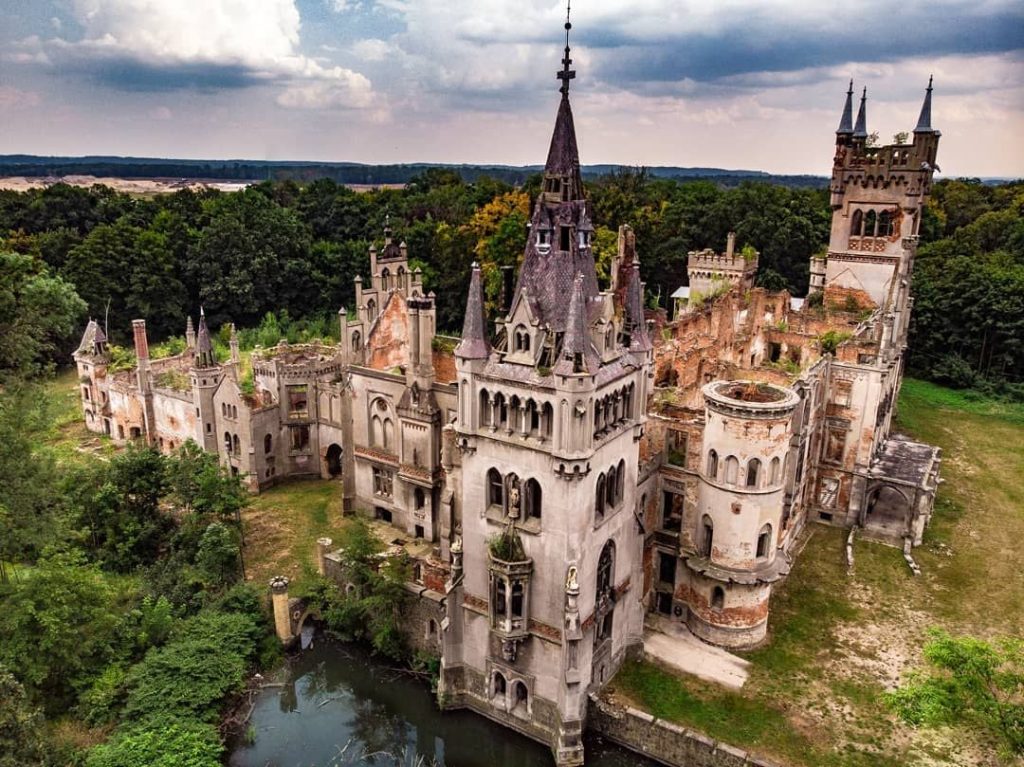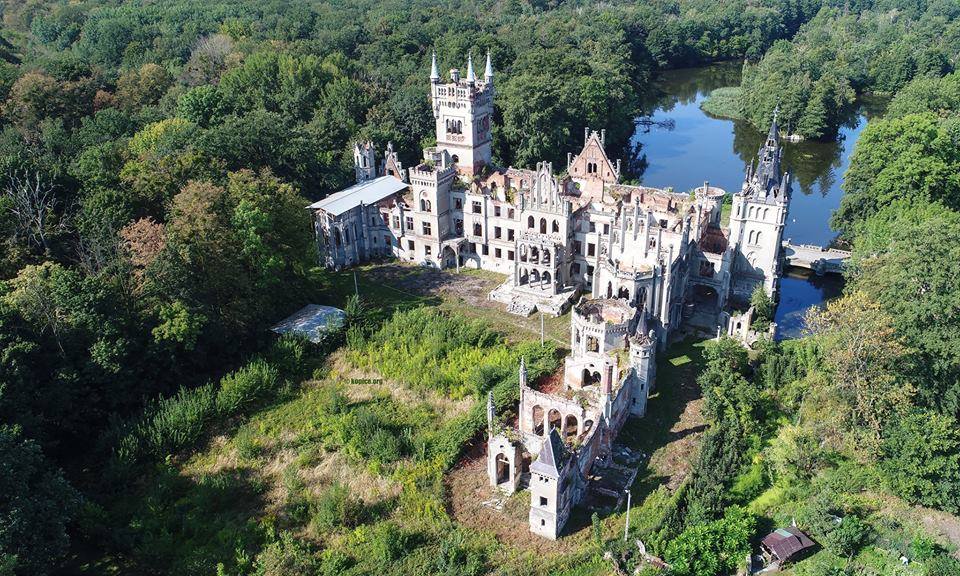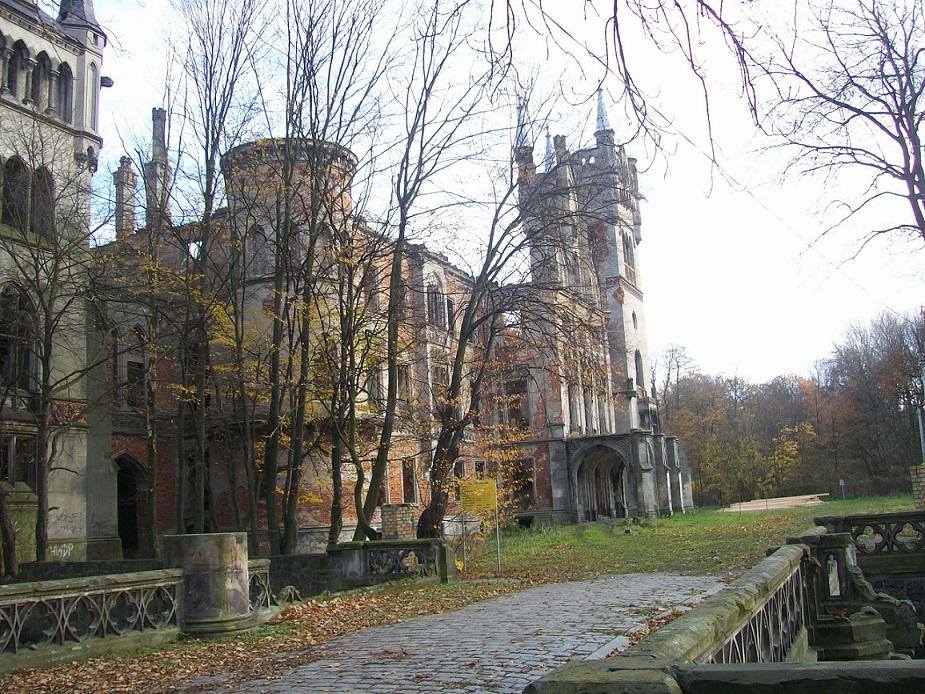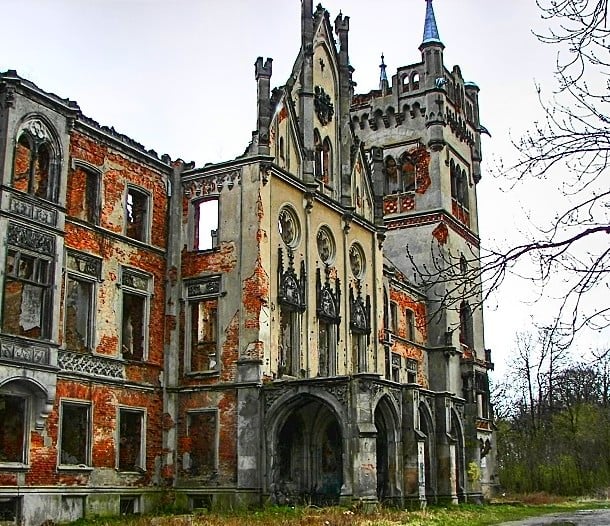Kopice Castle in Poland: A Majestic Fortress Steeped in History

Kopice Castle, standing for hundreds of years, carries within its ancient walls a tragic story that spans centuries. From its humble beginnings as a knight’s seat in the mid-14th century, the castle has witnessed a succession of owners, each leaving their mark on its history. From transformations in architectural style to a connection with the famous Cinderella fairytale, the castle’s narrative is a captivating blend of triumph and sorrow. Join us as we unravel the dramatic tale of Kopice Castle and its enduring legacy.
A Shifting Ownership: The roots of Kopice Castle lie with the von Borsnitz family, who ruled over the castle during its prominence in the mid-14th century. In 1450, the von Bessez family acquired the magnificent property, marking the beginning of a series of ownership changes. From Baltazar von Neckem to Hans Heinrich, Heymann von Rosenthal, Gotfried von Spaetgen, and the Silesian family von Sierstorpff, the castle passed through the hands of various noble families.

Architectural Transformations: Under the order of the von Sierstorpff family, Kopice Castle underwent a significant transformation from its original Gothic style to a classical residence. The redesign, led by the skilled Opole architect Heinrich Kaspar, added a touch of elegance and sophistication to the castle’s architecture. However, in 1859, when the castle fell under the possession of the von Schafgottsch family, they embraced a neo-Gothic style, which defines the castle’s appearance to this day. The meticulously manicured park area and gardens complement the palace, exuding a sense of charm and beauty.

The Cinderella Connection: An intriguing connection between Kopice Castle and the famous Cinderella fairytale emerges through the story of Joanna Schaffgotsch. Born into a poor Silesian family in 1842, Joanna’s life took a fortuitous turn when her parents found employment with Karol Godulla, one of Silesna’s wealthiest individuals. After the loss of her father at a young age, Joanna’s mother worked as a maid in the household of Karl Godulla, who recognized Joanna’s fearless nature and decided to care for her. Upon Godulla’s passing, he bequeathed his entire estate to Joanna, including manors, wealth, mines, and more. As per the inheritance agreement, Joanna added the name Godulla to her own when she married a count. This young girl, known as the “Silesian Cinderella,” rose to prominence, gaining the respect of queens and becoming a celebrated member of the royal court. She became an embodiment of strength, humility, and beauty, all while single-handedly managing the palace complex and multiplying her husband’s fortune.

Tragedies and Relocation: Both Joanna’s husband and herself passed away on the castle grounds, with her husband’s demise occurring in 1905 and Joanna’s five years later. However, during World War II, the castle fell victim to Nazi invasion, enduring extensive damage and pillaging. Disturbingly, the Nazis violated Joanna and her husband’s mausoleum, disturbing their resting place and publicly displaying their remains. Eventually, the Nazis relocated their remains to a mass graveyard, adding another layer of tragedy to Kopice Castle’s history.
Architectural Marvels: Kopice Castle stands as a testament to architectural splendor, with its numerous towers, exquisite artworks, soaring pinnacles, and diverse elevations. Each element contributes to the castle’s allure, creating a visual feast for visitors and evoking a sense of wonder and admiration.
Conclusion: Kopice Castle’s story is one of triumph and tragedy, intertwined with the shifting tides of history. From its origins as a knight’s seat to the hands of noble families, each chapter in the castle’s ownership brought about architectural changes and cultural significance. The transformation from Gothic to classical and later to neo-Gothic styles reflects the evolving tastes and preferences of different eras.